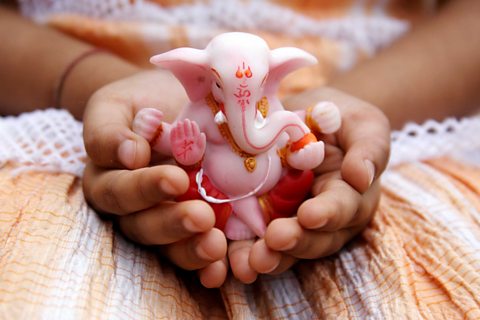Special revelation โ Hindu perspectives
Dreams and visions
Some Hindus believe that dreams are another state of โbeingโ for the atman (soul) where BrahmanFor Hindus, Brahman is the ultimate reality โ one 'Supreme Spirit' in many forms. Brahman is male, female and even animal. is accessible to any โordinaryโ atman.
If dreams contain a prophecy, this may be interpreted as a type of special revelation to be acted upon.
The Brihad-Aranyaka Upanishad (a sacred Hindu text) states:
When the atman is in the land of dreams, then all worlds (Earthly and other realms) belong to that atman.
Many Hindus believe that through experience and meditation they can gain knowledge of Brahman. This is a personal experience, reached individually. Ways of experiencing include:
- Meditation - by chanting sacred verses, or by repeating the sacred syllable 'aum'.
- Pranayam - using breath control to aid health and meditative focus. Some use controlled breathing and body postures (what most people commonly call โyogaโ) as part of their meditative practice.
- Other focuses of meditation include the use of a mala (a string of prayer beads) that concentrates the mind, meaning everyday thoughts are cleared away.
Miracles
There are many examples of miracles in Hindu scripture. For example, Shiva (Hinduism)A Hindu deity. The aspect of Brahman responsible for destruction and renewed creation. Some Hindus regard Shiva as the one Supreme Deity. bringing his beheaded son back to life with an elephantโs head (this elephant-headed god is known as Lord Ganesh).

Some Hindus believe that Brahman is omnipotent (all-powerful), so these events actually happened. Others interpret miracles as a way to convey messages.
Some Hindus would argue that what appears โmiraculousโ is only so because we do not fully understand or access the full capacity of our atman. This is why a sannyasinIn Hinduism, a person who has entered the fourth life stage, leaving behind family, friends and all material possessions and devoting their life to attaining moksha (freedom from rebirth). is able to stay lying on a bed of nails without food and water for weeks at a time because he has worked at accessing his โhiddenโ capacities.